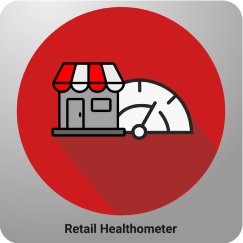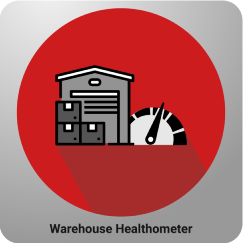If ERP (Enterprise Resource Planning) is the technology to drive the business processes, SOPs (Standard Operating Procedures) lends it the direction and purpose. SOPs can be implemented without an ERP but it will not be as effective the other way round. ERP is a software-driven information system meant to help businesses in recording, storing and disseminating or sharing the required information across the organization to facilitate decision-making. Through SOPs businesses can derive what information will be required, by whom and when in the organization to successfully complete an operational activity. In this article, we’ll deliberate on the importance of integrating ERP and SOP. Consider the following example going through the article. Invent Your Requisition Op (Inventory Process)
Invent Your Requisition Op (Inventory Process)
Make SOP Implementation Easier and Effective
Although SOPs can exist standalone the implementation of the SOPs become easier and far more effective with ERP. The conventional way of implementing SOPs is by providing SOP manuals, handbooks and necessary training to the employees. An advanced way of implementing SOPs is by having an ERP system in place and integrating the SOPs with the ERP. Integration of ERP and SOP means that ERPs being software programs can be designed and customized according to the predefined operational procedures and information needs involved in various operations of the business processes of an organization. In other words, ERP maps these SOPs in the background and provides a window to the concerned users to digitally access and give effect to their operational activities. The cutting edge of software technologies makes ERP a reliable business tool for implementing SOPs.
Integration of ERP and SOP means that ERPs being software programs can be designed and customized according to the predefined operational procedures and information needs involved in various operations of the business processes of an organization
For example, it can be a hectic task for a store employee to manually keep track of all the inventory requisitions while following the SOPs for each one of them. This will also result in a lot of paperwork. But with an Inventory Process ERP in place, the status and information pertaining to each of these requisitions remain sorted, segregated and updated in the information system and any pending SOP action with respect to a corresponding requisition will be shown to the user employee.
Provide Pace and Accuracy to the Operational Activities
Speed, accuracy and control in the execution of the operational activities are critical to attaining the objectives of the business processes of an organization. With SOP-ERP integration, the operational procedures get mapped in the information system which makes the business processes largely automated. This automation combined with ERP’s information-sharing capabilities on a real-time basis lends stability, consistency, accuracy and promptness to the operational activities being carried out by the employees engaged in different business processes.
SOP-ERP integration, the operational procedures get mapped in the information system which makes the business processes largely automated
For example, if the inventory manager is out of the station and there are pending approvals for inventory requisition, he can access his ERP account remotely, review the requisitions, check for necessary information and grant the approvals as per rule.
Maintenance of Standards
One of the core objectives of having SOPs is to ensure achievement of the accepted standards of performance and output at the operational level. With SOP-ERP integration, these standards are already mapped against each operational activity in the ERP information system. The system will not let any user employee proceed to the next operational activity until they have completed the current activity as per the requirements of the SOPs. The statuses of operational activities of the subordinates will also be reflected on the ERP window of the concerned reporting authority.
The system will not let any user employee proceed to the next operational activity until they have completed the current activity as per the requirements of the SOPs
For example, if a subordinate has not forwarded an inventory requisition (say because of non-availability of inventory in the warehouse) to his reporting authority for approval, the updated status will also be visible to the latter who can initiate a follow up or a remedial action to ensure that the requisition delivery does not miss the deadline.
Introduce Changes in Business Processes
Whenever there’re drastic changes in the external business environment, organizations are required to evaluate its impact on their business operations and initiate measures to cope up with those changes. These measures often include changes or adjustments in the operational procedures of the affected business processes. This organizational response has to be fast and effective enough so as to prevent any negative impact on the business operations. Organizations having multiple branches/stores with a lack of uniformity in their operating procedures (which is very likely in the absence of SOPs) and running without any integrated information system, often find themselves on the back foot in these kinds of adverse situations as they lack the necessary technological and SOP platform. With the presence of an integrated SOP-ERP platform, an organization can centrally incorporate any required change in its business software applications and remotely introduce the SOP modifications.
The integration of SOP and ERP is essential to extract the best of both worlds. On one hand, SOPs provide the roadmap and standards for the operational activities and on the other hand, ERPs provide the required software platform to reinforce the implementation and execution of SOPs.
Benefits of Standard Operating Procedures (SOPs)
To read more article related to this topics click here:: Expanding Business Without USPs is like Encountering Danger Zone Ahead | YRC, How Can an SME Raise Funds from Public? | YRC, 05 Reasons why Developing the Right Culture in the Organization is Inevitable for Growth | YRC, How SOPs will Benefit Wholesale Brand Venturing into Retail | YRC.
YRC is an “Expert Service Division” of Mind-A-Mend Consultancy Pvt. Ltd.
| Technology without purpose is meaningless. |
Author Bio

Nikhil Agarwal
Chief Operations Officer










